Image of the Day 2019 Archive
Explore our Image of the Day 2019 Archives!
March 2019
Crew Dragon Ready for Launch
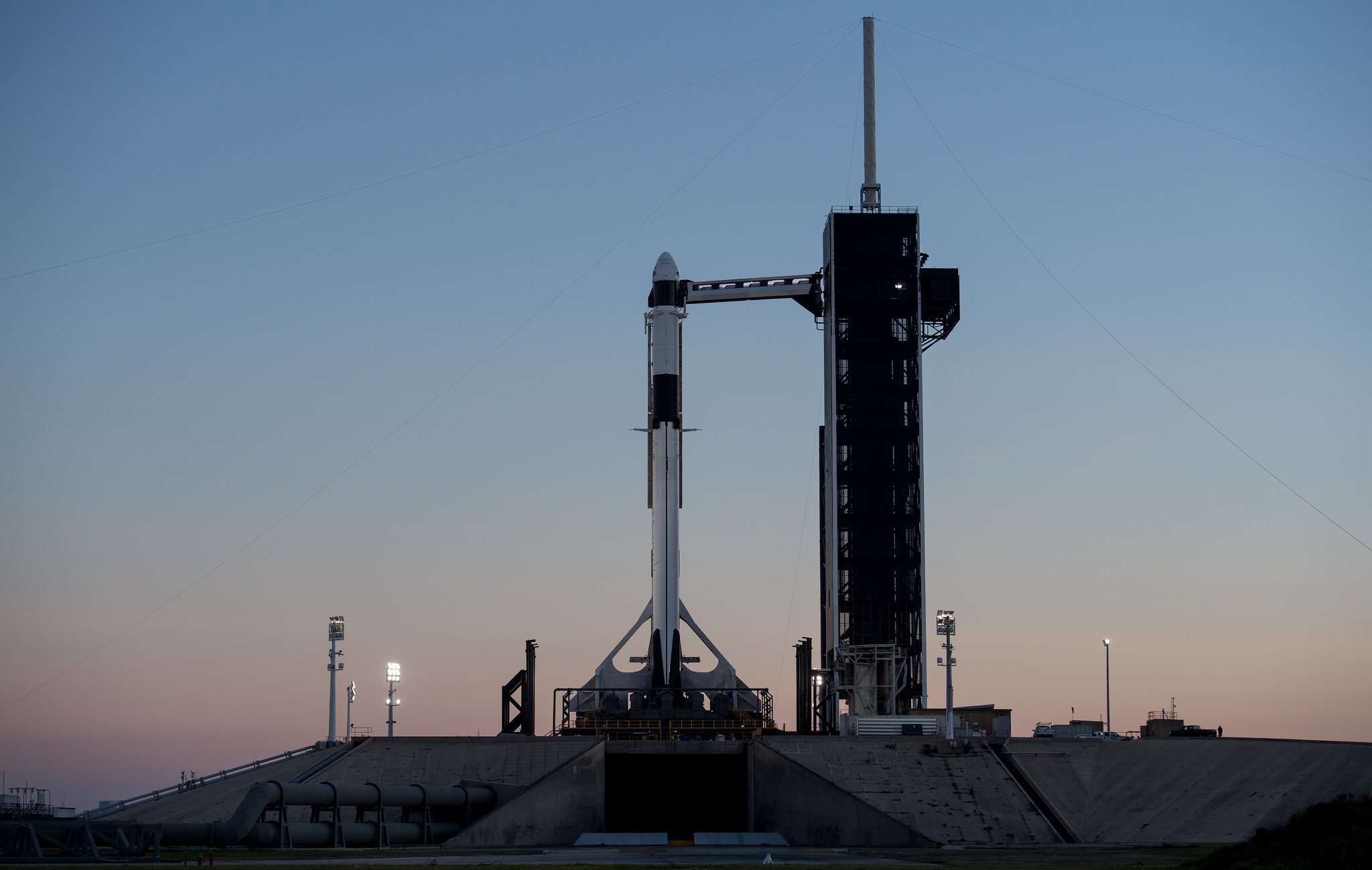
Friday, March 1, 2019: A SpaceX Falcon 9 rocket topped with the Crew Dragon spacecraft stands vertical on the launchpad at NASA's Kennedy Space Center in Florida ahead of its planned launch to the International Space Station. The capsule will make its first test flight on Saturday (March 2) at 2:49 a.m. EST (0749 GMT) with no passengers on board — except for a mannequin named Ripley, who will be wearing a SpaceX spacesuit. — Hanneke Weitering
Crew Dragon on the Horizon
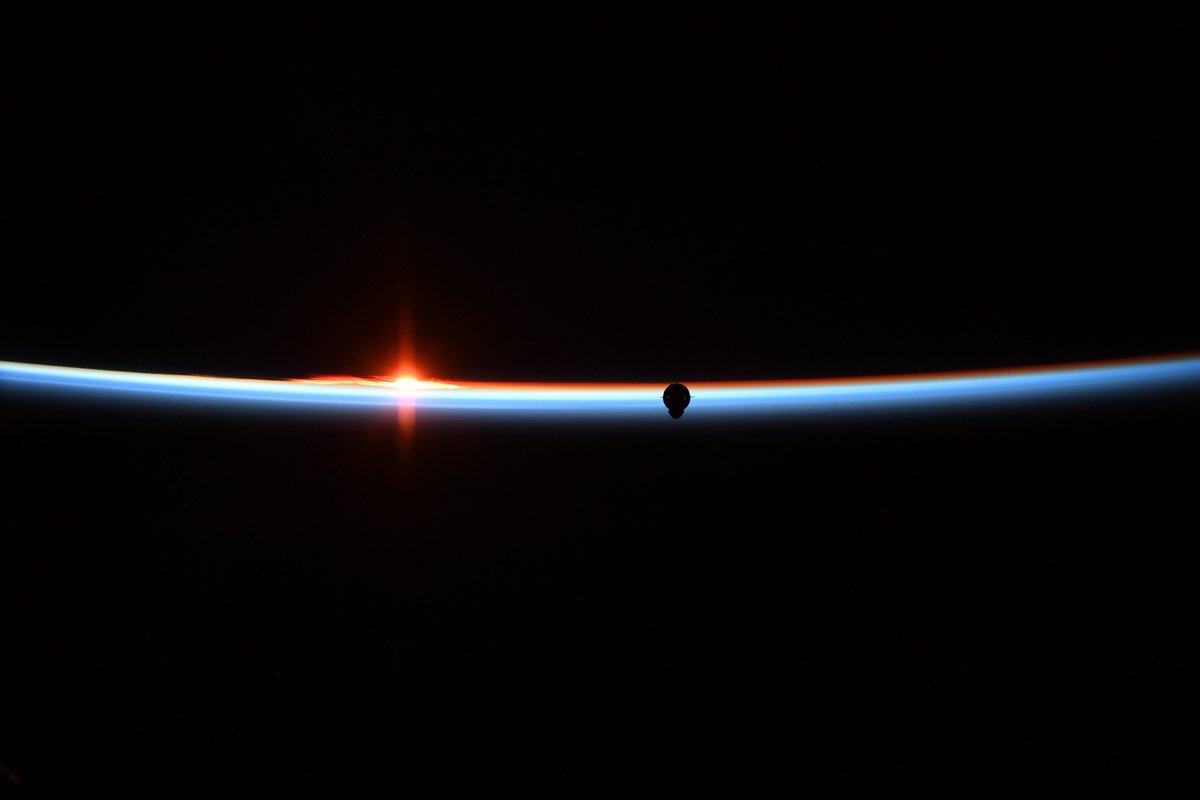
Monday, March 4, 2019: A silhouette of SpaceX's Crew Dragon spacecraft passes in front of Earth's bright-blue horizon as it approaches the International Space Station in this photo by NASA astronaut Anne McClain. "The dawn of a new era in human spaceflight," McClain tweeted on Sunday (March 3) after the Crew Dragon docked with the station, becoming the first commercial crew spacecraft to ever visit the orbiting laboratory. — Hanneke Weitering
Southern Lights Over 'SuperDARN' in Antarctica

Tuesday, March 5, 2019: Wispy, green auroras shimmer over Antarctica in this photo captured from the Amundsen-Scott South Pole Station, a research site operated by the National Science Foundation. Daniel Michalik, a research fellow with the European Space Agency, captured this single-exposure image while braving temperatures as long as minus 72 degrees Fahrenheit (minus 60 degrees Celsius). In the foreground of the image and trailing off into the distance are antennas and wires that make up the Super Dual Auroral Radar Network (SuperDARN), which monitors geomagnetic activity in Earth's upper atmosphere. — Hanneke Weitering
Star Trails Over Flores
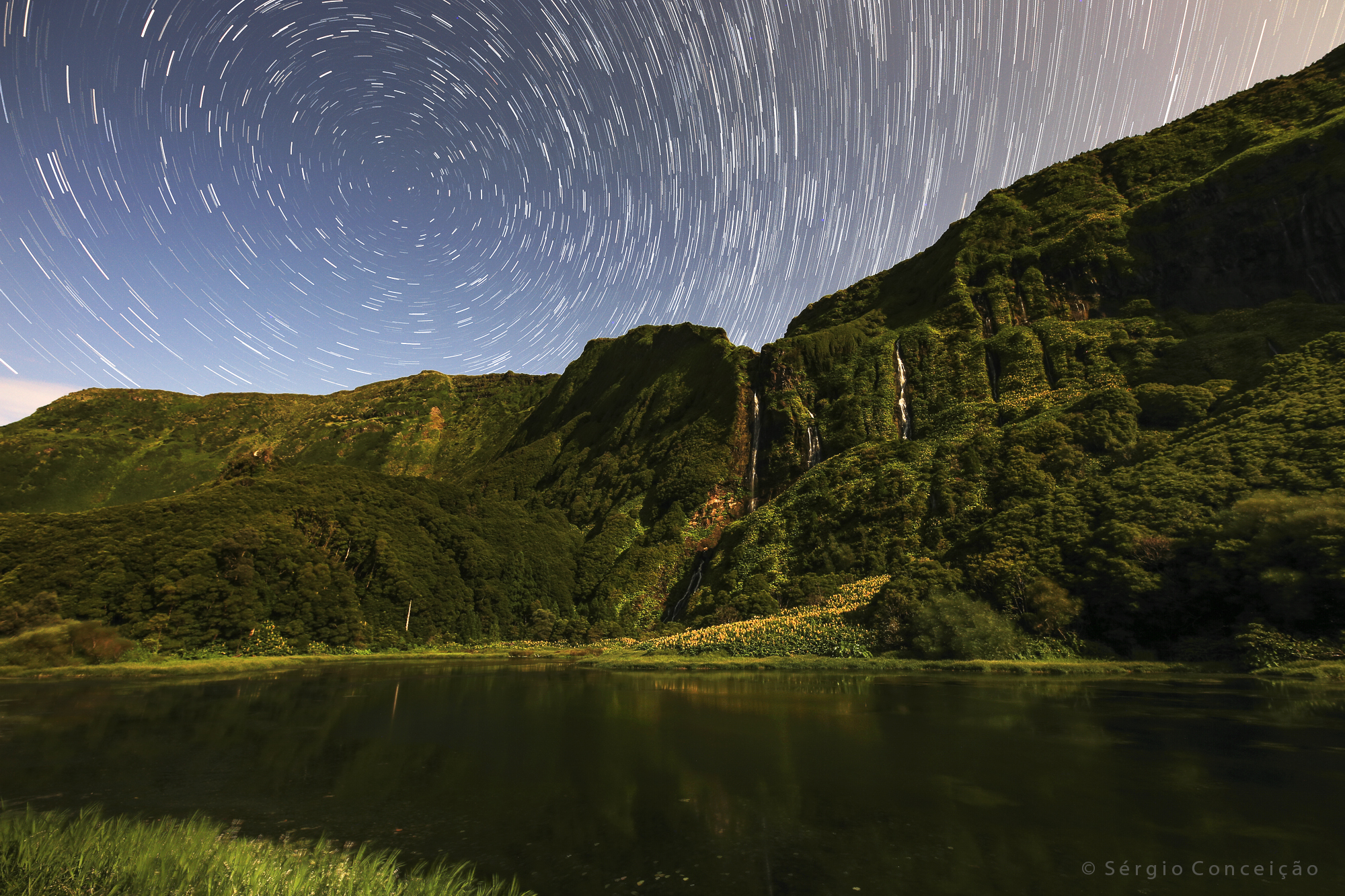
Wednesday, March 6, 2019: Short star trails circle the North Star, Polaris, above a gorgeous landscape on Flores Island in this long-exposure image by astrophotographer Sérgio Conceição. He called this scene a "rare moment" for the island, where the sky is seldom clear enough to capture such a spectacular view of the sky. — Hanneke Weitering
SpaceX Sticks a Drone-Ship Landing

Thursday, March 7, 2019: The Falcon 9 rocket booster that launched SpaceX's Crew Dragon Demo-1 mission on Saturday (March 2) lowers itself onto a drone ship to stick an upright landing in this photo captured seconds before the successful touchdown. After delivering the Crew Dragon into orbit, the booster came back to Earth and aced the landing on the SpaceX drone ship, named "Of Course I Still Love You," which was stationed in the Atlantic Ocean off the Florida coast. — Hanneke Weitering
Crew Dragon in the Clouds
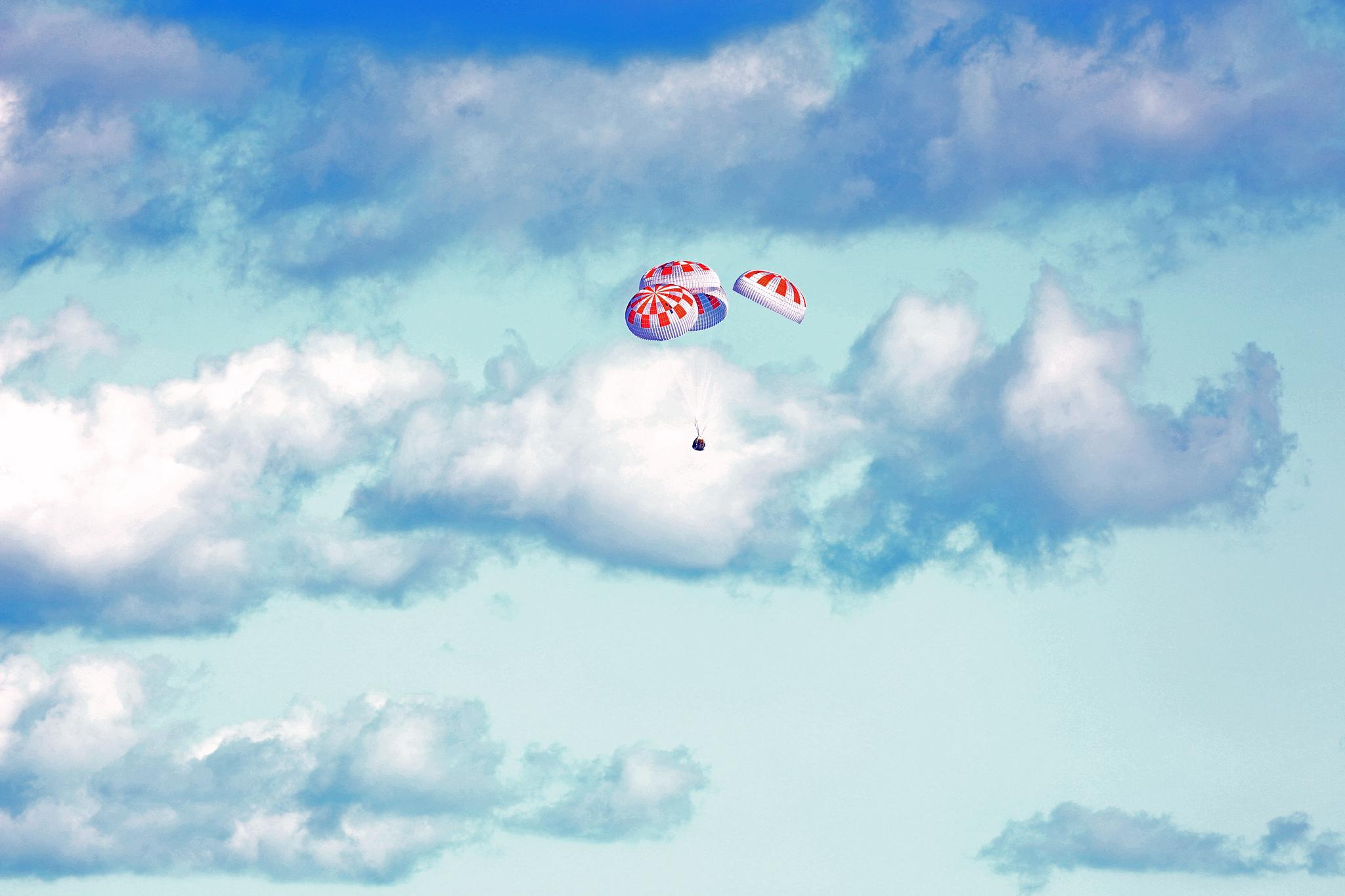
Monday, March 11, 2019: Guided by four parachutes, the SpaceX Crew Dragon capsule gently drifts back down to Earth after spending nearly a week at the International Space Station for its first mission. The uncrewed capsule splashed down in the Atlantic Ocean on Friday (March 8) at 8:45 a.m. EST (1345 GMT). — Hanneke Weitering
'Pac-Man' Eats the Moon
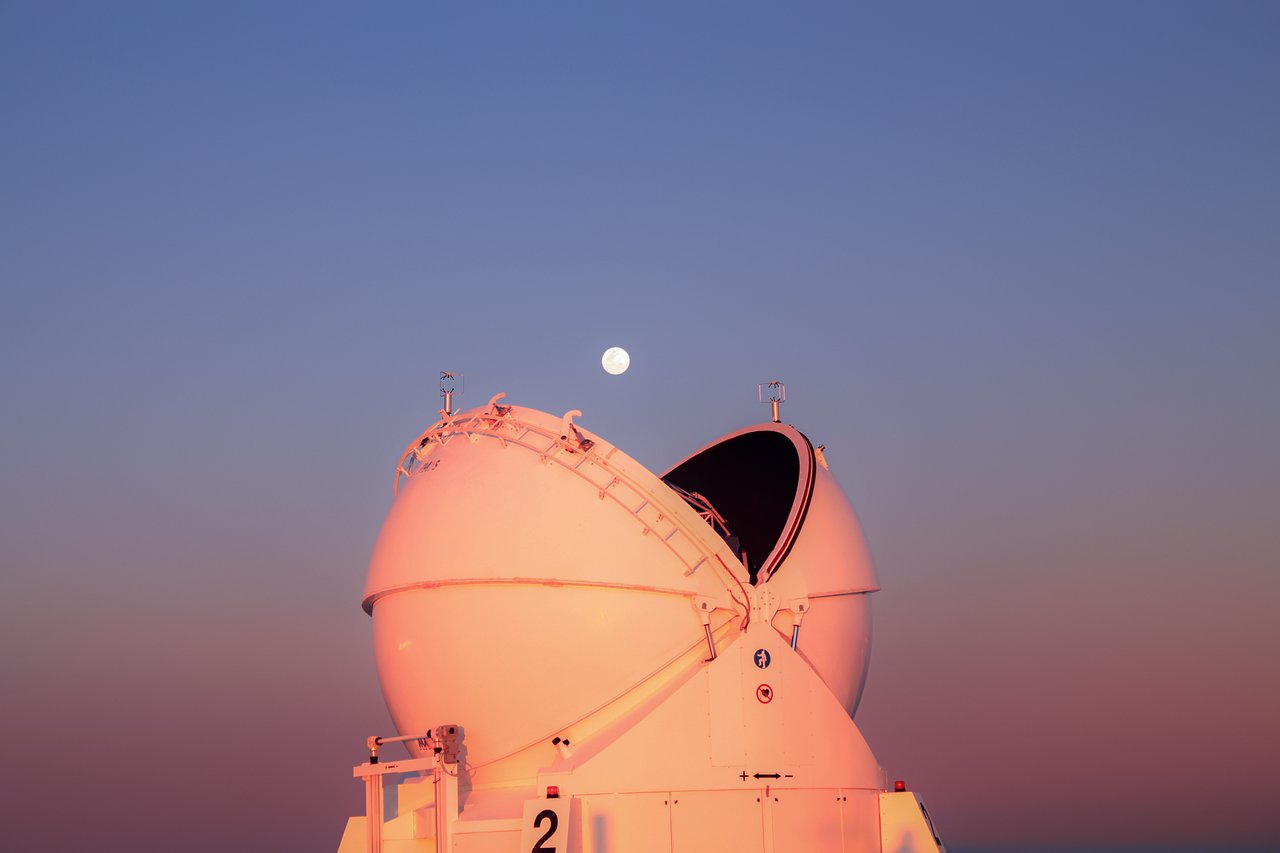
Tuesday, March 12, 2019: A telescope with an open dome looks like Pac-Man preparing to gobble down the full moon in this photo from the European Southern Observatory's Very Large Telescope array. Located at the Paranal Observatory in Chile, the array consists of four of these 1.8-meter auxiliary telescopes and four larger main telescopes. — Hanneke Weitering
Get the Space.com Newsletter
Breaking space news, the latest updates on rocket launches, skywatching events and more!
A Toasted Space Marshmallow
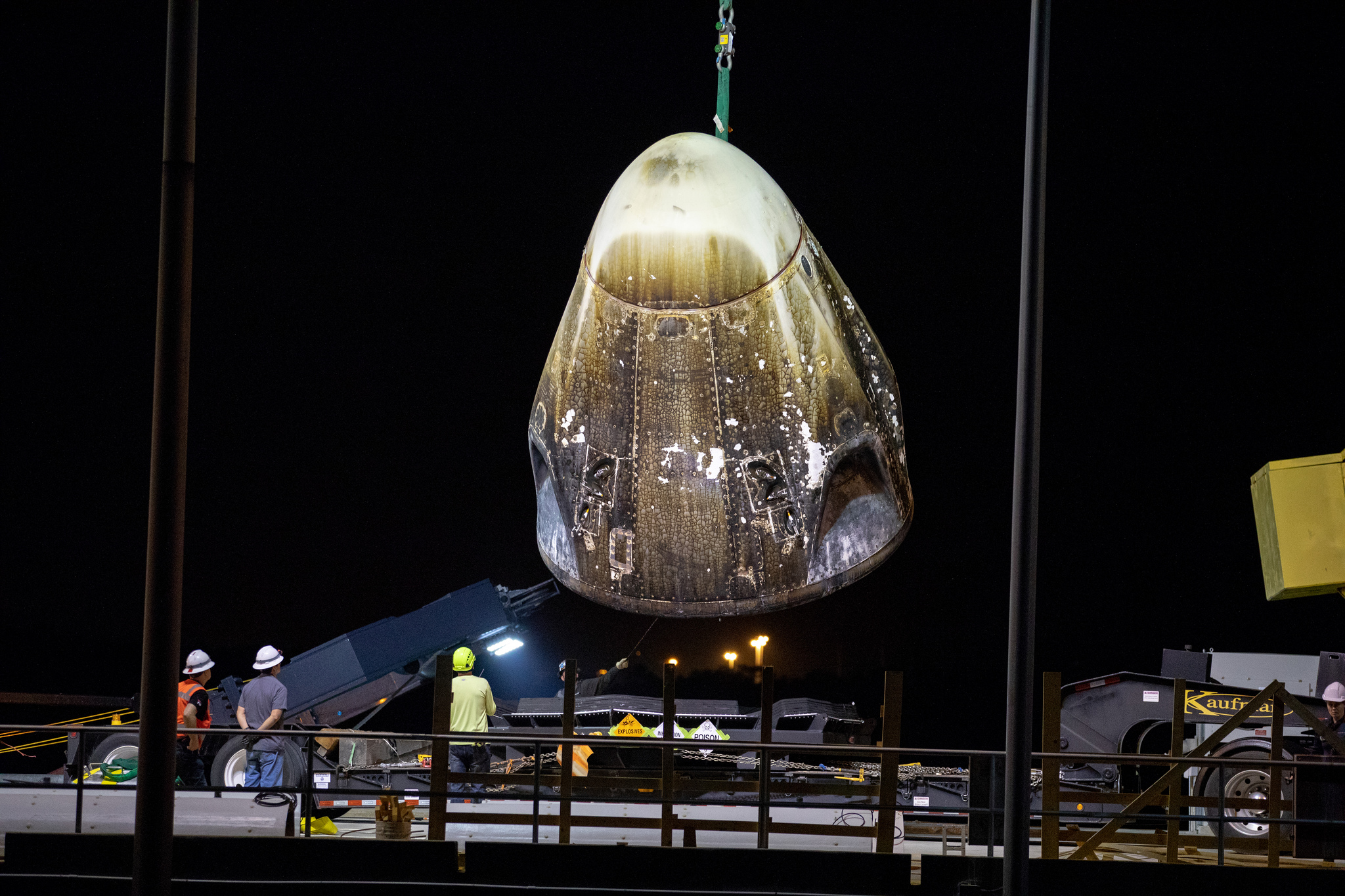
Wednesday, March 13, 2019: Houston, we have a marshmallow! The SpaceX Crew Dragon capsule looks like a freshly toasted marshmallow after its fiery reentry through Earth's atmosphere. The capsule returned to Earth from its week-long mission to the International Space Station on Friday (March 8), when it splashed down in the Atlantic Ocean off the coast of Florida. Recovery teams pulled the charred capsule out of the water and transported it back to land on the company's recovery ship, shown here. — Hanneke Weitering
Happy Birthday, Albert Einstein!
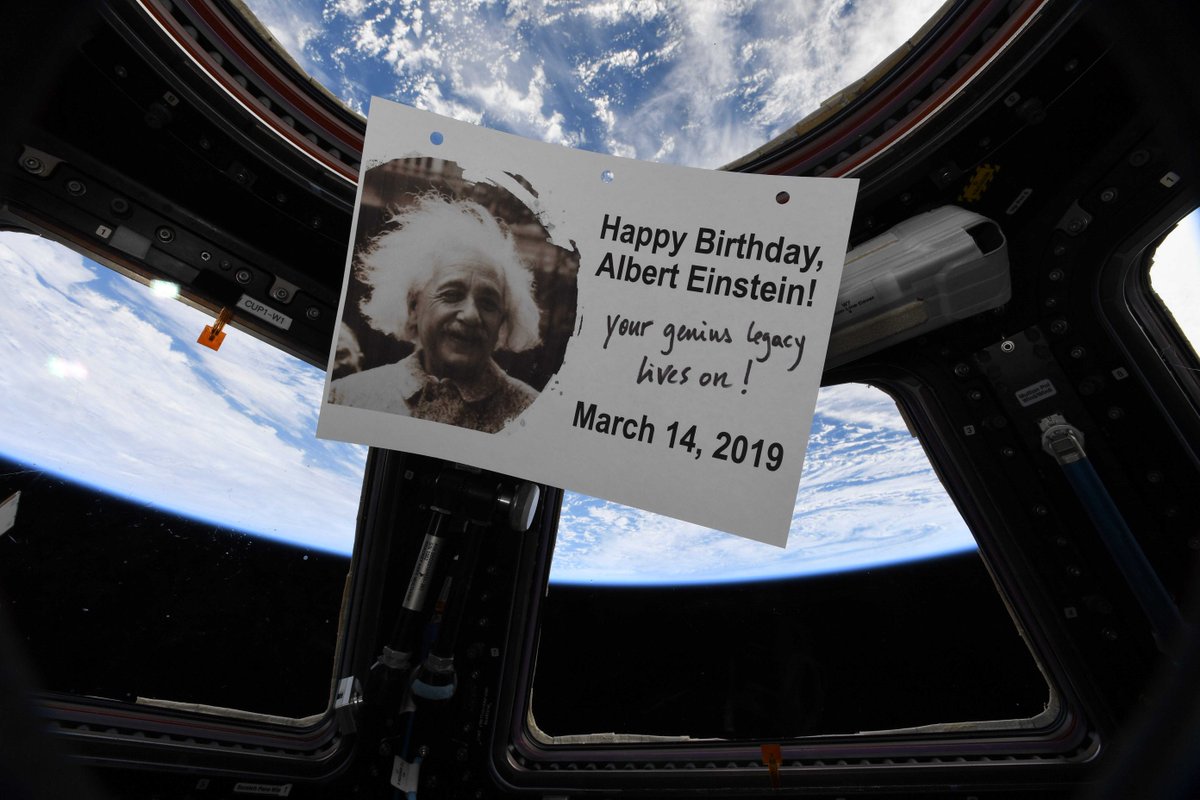
Thursday, March 14, 2019: Astronauts at the International Space Station celebrated what would have been Albert Einstein's 140th birthday today by sharing this photo of him floating weightlessly in the Cupola observatory. Einstein, who was born on Pi Day in 1879 and passed away on April 18, 1955 at the age of 76. — Hanneke Weitering
Soyuz Streaks to Space Station!
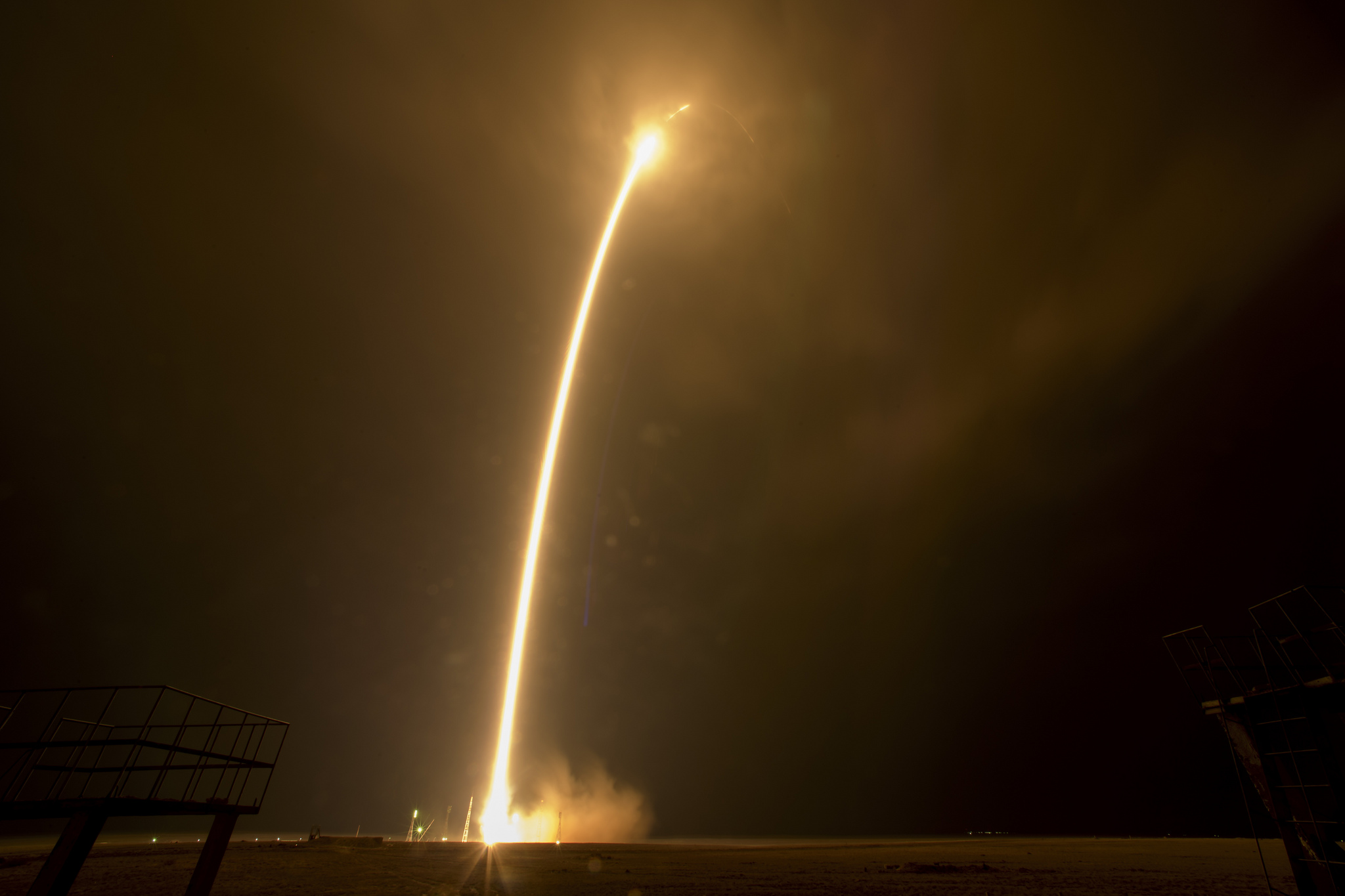
Friday, March 15, 2019: The second time was the charm for NASA astronaut Nick Hague and Roscosmos cosmonaut Alexey Ovchinin as they launched into space on a Soyuz MS-12 spacecraft on March 14 Eastern Time (it was early March 15 local time at their Baikonur Cosmodrome launch site in Kazakhstan). The two men launched into space with NASA astronaut Christina Koch to join the Expedition 59 crew on the International Space Station. Hague and Ovchinin initially tried to launch to the station in October 2018, but their rocket failed and they experienced a harrowing emergency abort. "This launch was infinitely more better than the last one," Hague told his wife Katie after reaching the station late yesterday. — Tariq Malik
A 'Nebulous' Star Cluster
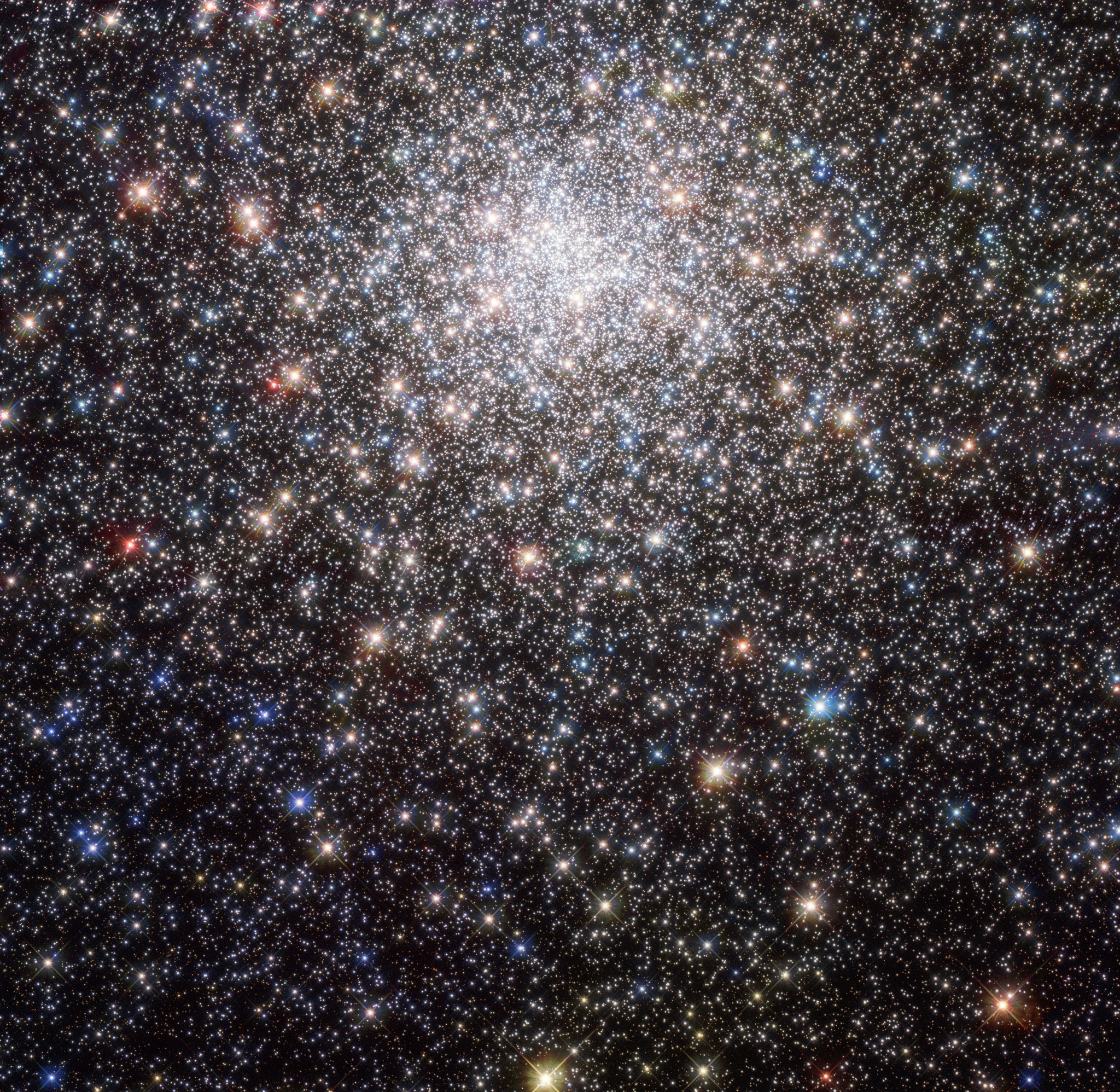
Monday, March 18, 2019: In this Hubble Space Telescope view of the globular cluster Messier 28, countless multicolored stars stand out as specks in a glittering cosmic sea. But when the astronomer Charles Messier first observed the cluster in the 18th century, he mistook it for a starless nebula, or a cloud of dust and gas. Larger telescopes later revealed that Messier 28 is in fact a rich star cluster. Located nearly 18,000 light-years from Earth in the constellation Sagittarius, this cluster contains at least 50,000 stars. — Hanneke Weitering
Galactic Arc Sparkles Over Portuguese Bridge
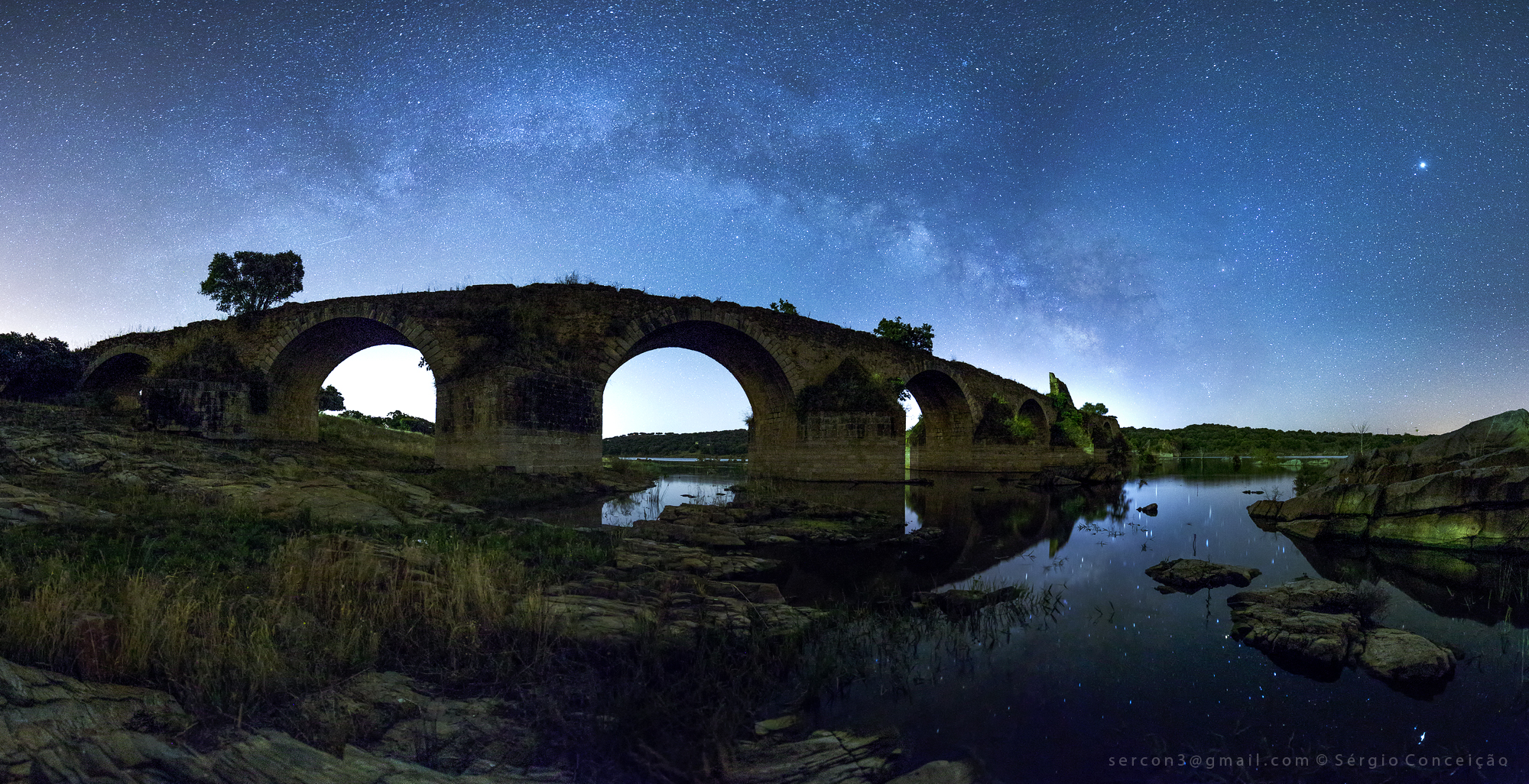
Tuesday, March 19, 2019: The Milky Way glitters in the predawn sky over Portugal's Guadiana River in this image by astrophotographer Sérgio Conceição. Saturn, Jupiter and the bright star Antares appear embedded in the Milky Way's dusty arc, while the bright star Spica dominates the sky to the right. In the foreground of this photo is the 500-year-old Bridge of Ajuda. — Hanneke Weitering
How the Equinox Looks from Space
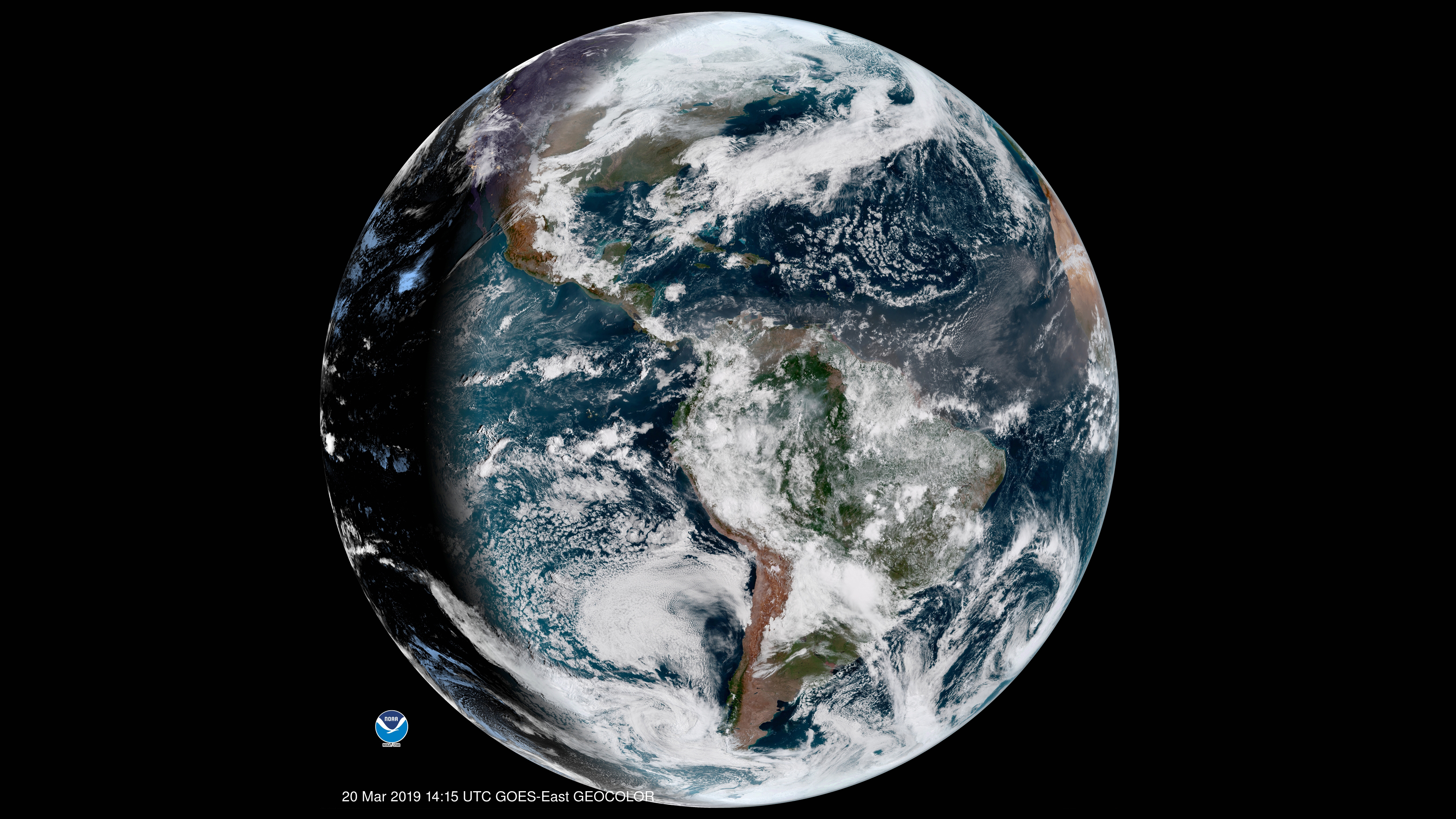
Wednesday, March 20, 2019: Happy vernal equinox! Here's a satellite view of the sun rising over North America this morning on the first day of spring. In the Southern Hemisphere, today is the first day of autumn. — Hanneke Weitering
Space Station Transits the Moon
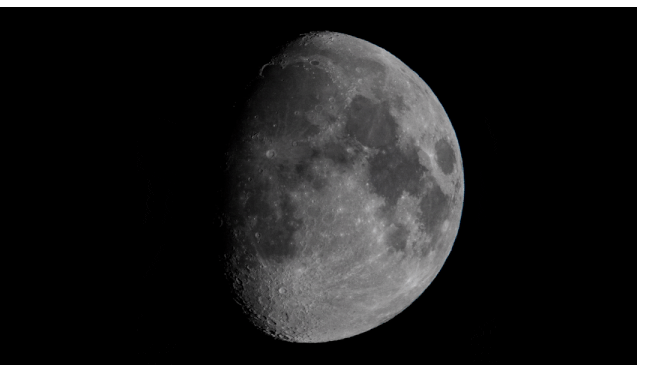
Thursday, March 21, 2019: It's a bird! It's a plane! Nope, that's the International Space Station zooming past the moon at an impressive speed of about 5 miles per second (8 km/s). NASA photographer Joel Kowsky captured a sequence of nine images to created this animated view of the transit on Saturday (March 16), two days after three Expedition 59 crewmembers arrived at the orbiting lab. — Hanneke Weitering
Oil Spill Seen from Space

Friday, March 22, 2019: The European Space Agency's Copernicus Sentinel-1 satellite captured this image of an oil spill that resulted when the Italian container ship "Grande America" sank in the Atlantic Ocean off the coast of France on March 12. The oil slick stretches across an area spanning about 30 miles (50 kilometers), and oil is still spilling from the ship at the ocean floor. Sentinel-1 captured this radar image on Tuesday (March 19). — Hanneke Weitering
A Cosmic Question Mark
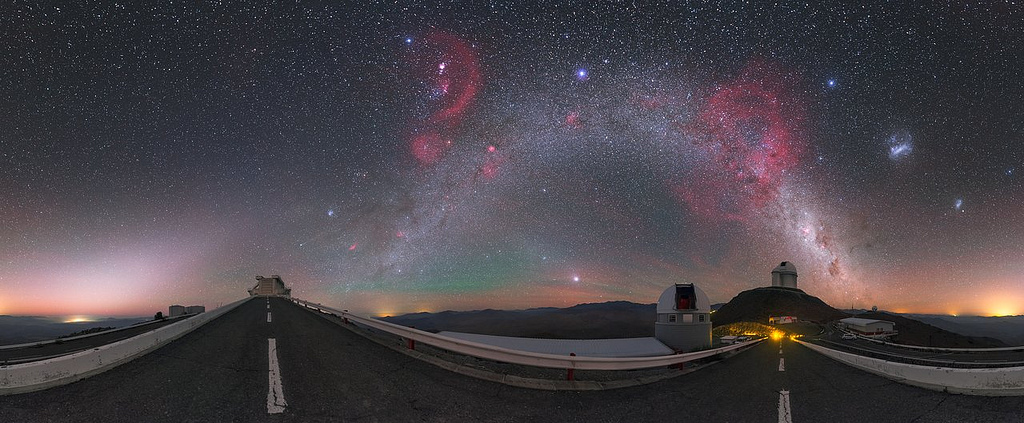
Monday, March 25, 2019: Colorful cosmic "fireworks" decorate the night sky over the La Silla observatory in Chile in this gorgeous image by the European Southern Observatory's resident astrophotographer Petr Horálek. Above the Milky Way and to the left are two nebulas that appear to form a question mark in the sky: an arc known as Barnard's Loop and the nearly-circular Angelfish Nebula right below it. These two nebulas are part of the Orion Molecular Cloud Complex. — Hanneke Weitering
A Jovian Marble
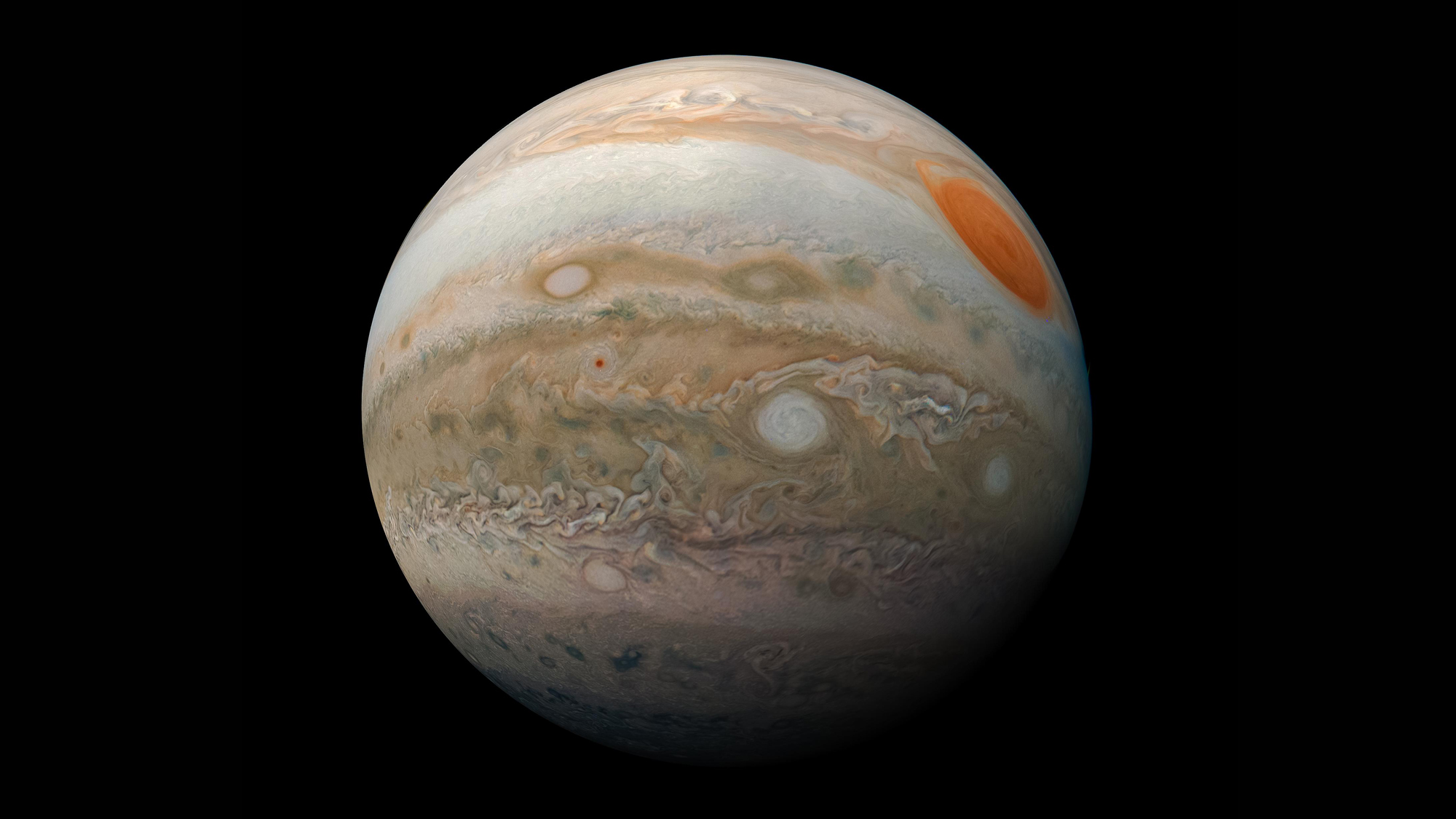
Tuesday, March 26, 2019: Jupiter looks like a beautifully detailed marble in this new view from NASA's Juno spacecraft. Taken from below Jupiter's southern hemisphere, this image features the planet's iconic Great Red Spot and several other storms of various sizes and shapes. Juno scientists combined three frames from the spacecraft's JunoCam imager to create this full-disk view of the giant gas planet. The images were acquired Feb. 17 when Juno was between 16,700 and 59,300 miles (26,900 to 95,400 kilometers) above the planet's cloud tops. — Hanneke Weitering
'A Million Dreams'
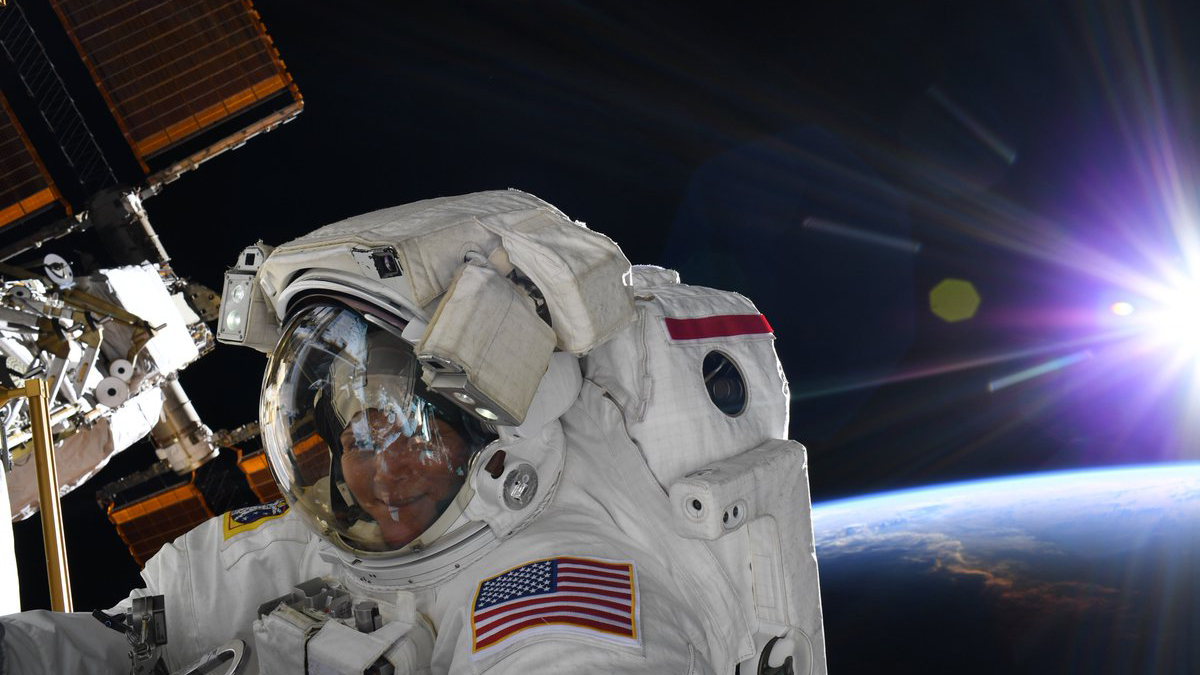
Wednesday, March 27, 2019: Rays of sunshine beam over Earth as NASA astronaut Anne McClain takes her first spacewalk outside of the International Space Station. "A million dreams is all it's gonna take," McClain tweeted after her spacewalk. She and NASA astronaut Nick Hague worked outside of the orbiting laboratory last Friday (March 22) to replace aging batteries on the station's solar arrays. McClain was scheduled to take her second spacewalk and the first all-female spacewalk in history this Friday (March 29), but NASA has reassigned her to another spacewalk due to spacesuit sizing issues. — Hanneke Weitering
A Cosmic Butterfly
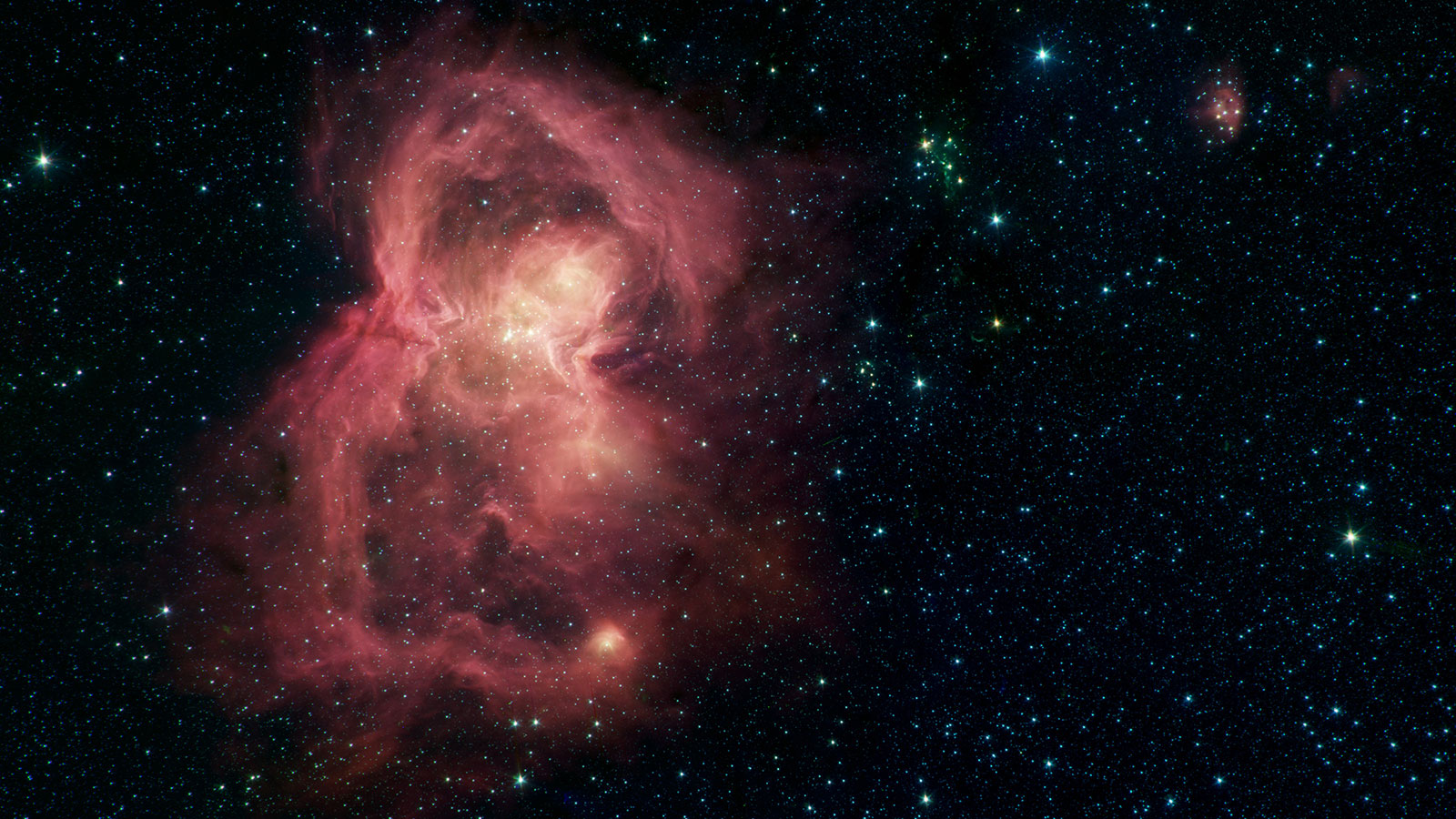
Thursday, March 28, 2019: Do you see the butterfly? This dazzling image of what looks like a red member of the lepidoptera order is actually a nebula in space about 1,400 light-years from our sun. The nebula, officially called Westerhout 40 (W40) is a vast cloud of gas where baby stars can be born. NASA's Spitzer Space Telescope captured this view with its Infrared Array Camera, using three different wavelengths that lend the image its distinct colors. Stars show up in brilliant blue light, while organic molecules are visible as reddish hues. Dusty material around stars show up as yellow and red. — Tariq Malik
An Out-of-This-World Selfie
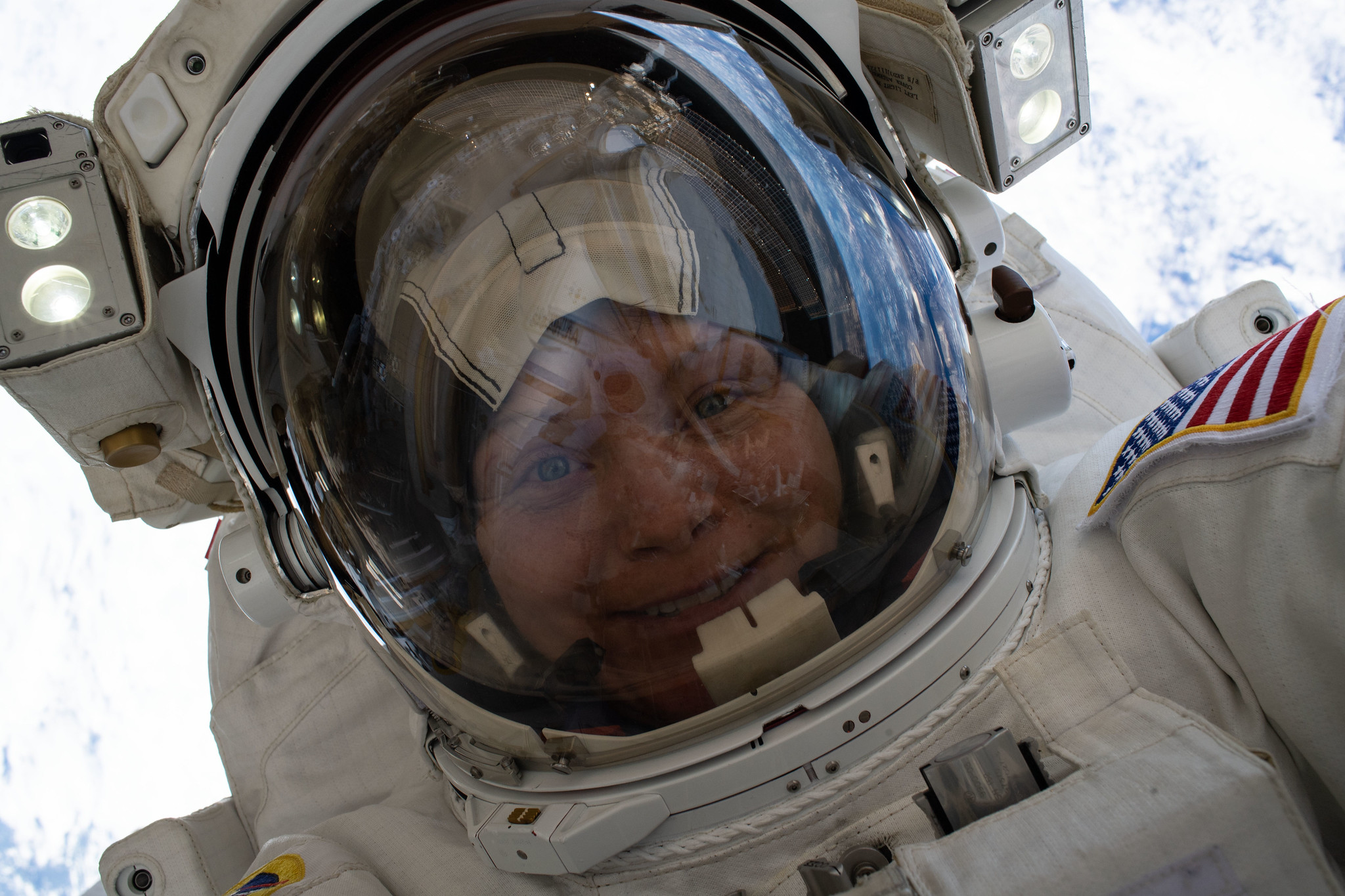
Friday, March 29, 2019: NASA astronaut Anne McClain is smiling from ear to ear in an out-of-this world selfie she took during her first spacewalk last Friday (March 22). McClain was originally scheduled to take her second spacewalk today, but her colleague Nick Hague took her place when she realized she wouldn't fit in her spacesuit. — Hanneke Weitering
Can't find the date you're looking for? It may have been a weekend or holiday, when we don't normally update our Image of the Day.
Click 'NEXT PAGE' below for April >
Join our Space Forums to keep talking space on the latest missions, night sky and more! And if you have a news tip, correction or comment, let us know at: community@space.com.

Space.com is the premier source of space exploration, innovation and astronomy news, chronicling (and celebrating) humanity's ongoing expansion across the final frontier. Originally founded in 1999, Space.com is, and always has been, the passion of writers and editors who are space fans and also trained journalists. Our current news team consists of Editor-in-Chief Tariq Malik; Editor Hanneke Weitering, Senior Space Writer Mike Wall; Senior Writer Meghan Bartels; Senior Writer Chelsea Gohd, Senior Writer Tereza Pultarova and Staff Writer Alexander Cox, focusing on e-commerce. Senior Producer Steve Spaleta oversees our space videos, with Diana Whitcroft as our Social Media Editor.









